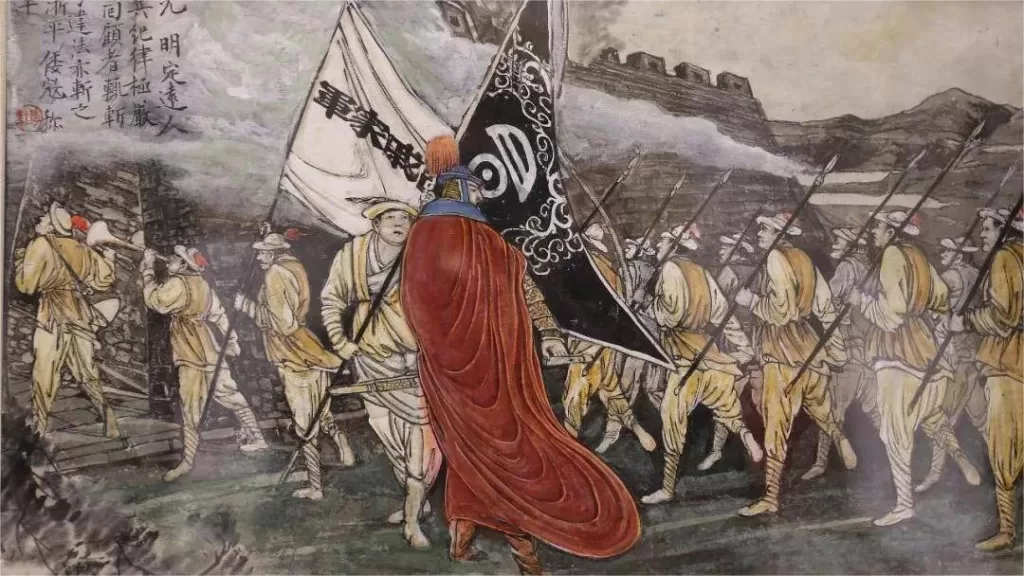Qi Jiguang (戚继光) (1528 November 12 – 1588 January 17/5), born in Penglai, Shandong, and raised in Jining, was a prominent figure in the Ming Dynasty, excelling in military strategy, calligraphy, and poetry. Renowned as a hero in the resistance against Japanese pirates, he left an indelible mark on Chinese military history.
Born into a humble family, Qi Jiguang was driven by a thirst for knowledge from a young age. In the 23rd year of the Jiajing era (1544), he assumed his father’s position as the commander of Dengzhou Wei and later served as a participating general in the Ning Shao Taiwan front in Zhejiang in the 34th year of Jiajing (1555). Qi Jiguang’s military prowess became evident as he recruited peasants and miners in Yiwu, forming a formidable new army equipped with advanced warships and weaponry. He innovated the “Mandarin Duck Formation,” a versatile tactic for both offense and defense, displaying remarkable flexibility in warfare. This earned his forces the moniker “Qi Family Army.”
In the 40th year of Jiajing (1561), Qi Jiguang achieved significant victories against Japanese pirates in places such as Taizhou, Xianju, and Taozhu, winning all nine battles. The following year, he was summoned to aid Fujian, where he virtually eradicated the main forces of Japanese pirates within the province. For his contributions, he was promoted to the position of Commander-in-chief. In the 42nd year of Jiajing (1563), he again came to Fujian’s aid, defeating the pirates at their stronghold in Pinghai Wei, and rose to the position of Commander-in-chief and Governor-General of Fujian.
In the 2nd year of Longqing (1568), Qi Jiguang was tasked with overseeing military training in Jizhou, Changping, Liaodong, and Baoding, securing the northern frontier against the threat of nomadic tribes, particularly the Jurchens. With the support of Zhang Juzheng and Tan Lun, he successfully defended the northern borders for an extended period. His long list of achievements led to his promotion as Left Commander and concurrently Grand Preceptor to the Crown Prince. However, in 1582, after the death of Zhang Juzheng, Qi Jiguang was transferred to Guangdong. Several years later, he was accused of misconduct and relieved of his duties, leading to his return home. Qi Jiguang passed away in 1588 at the age of 61, having faced poverty and disappointment in his later years. Posthumously, he was honored with the title “Wuzhuang” and later “Wuyi.”
Qi Jiguang’s military career spanned over 40 years, marked by victories in both the north and the south. His enduring legacy includes two influential military treatises, “Ji Xiao Xin Shu” (New Book of Discipline) and “Lian Bing Shi Ji” (Record of Military Training), which contributed significantly to the development of ancient Chinese military science. Apart from his military achievements, Qi Jiguang was also a skilled poet and writer, leaving behind a collection of poems and essays known as “Zhi Zhi Tang Ji” (Collected Works of Zhi Zhi Tang).

